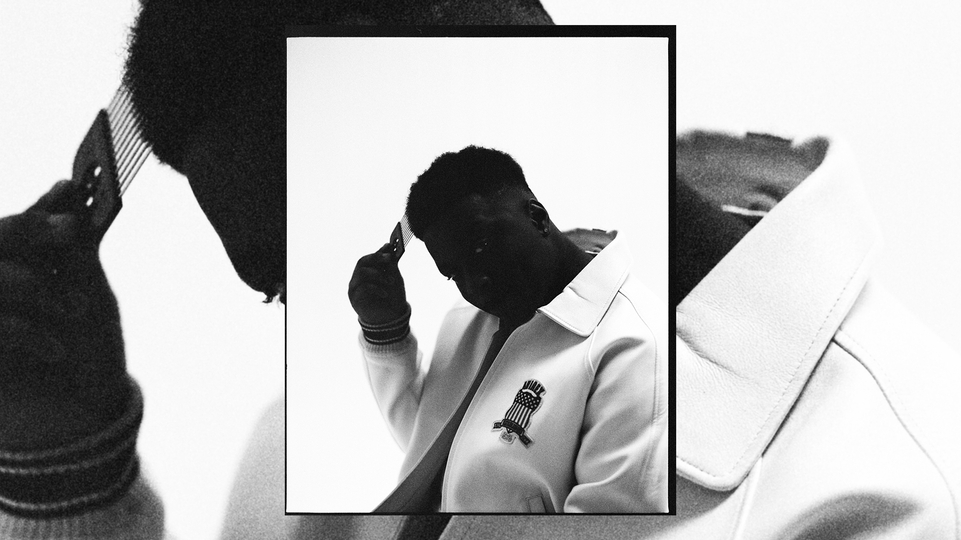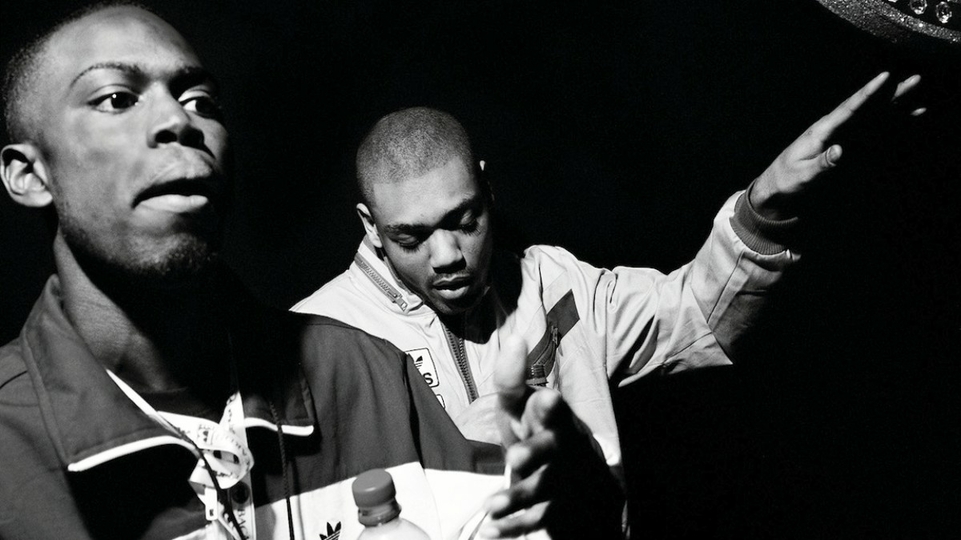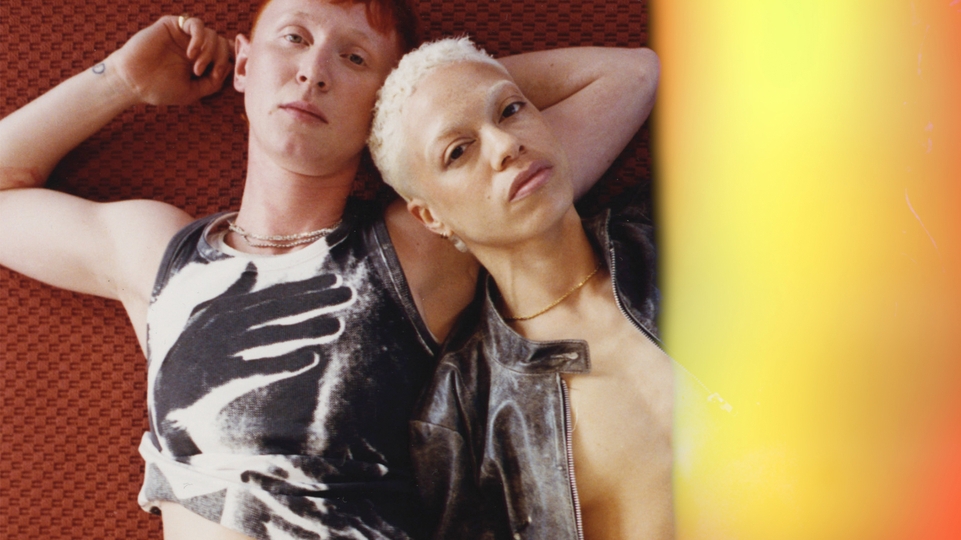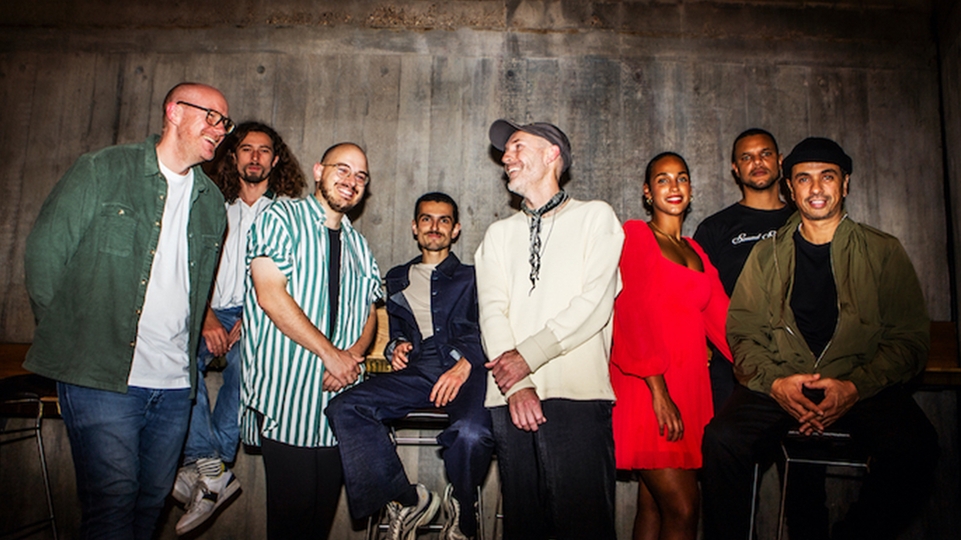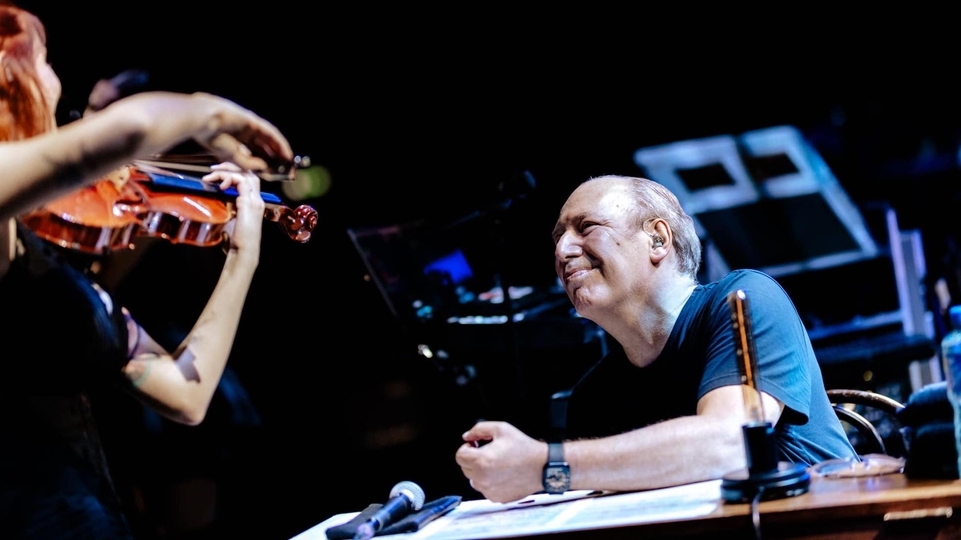
Manga St Hilare: a journey through grime
Part of foundational crew Roll Deep, Manga St Hilare has been involved in some of grime’s most iconic tracks. He’s stuck with it as some have tried to box off the genre, or even dismiss it entirely, building a catalogue of increasingly introspective and emotional music and arguing the case for grime as an unmatched, expansive artform
In the pantheon of grime, there are few more recognisable intros than the demented, pulse-quickening accordion on Roll Deep’s ‘When I’m Ere’. It was never actually released as an official single in 2005 — the year YouTube launched and grime burst forth from the underground with anthems like JME’s ‘Serious’, Kano’s ‘Boys Love Girls’ and SLK’s ‘Hype Hype’ — but it entered the wider consciousness thanks to an earworm hook, and an iconic video filmed in and around the legendary collective’s East London home.
Essentially a competitive 16-bar rally with a chorus, ‘When I’m Ere’ showcased Roll Deep’s evolving roster of MCs, from scene godfathers like Wiley and Flowdan to emerging talent such as Breeze and Jet Li. Like all great posse cuts, it posed the all-important question amongst the genre’s audience: who had the best verse? For many — this writer included — the answer was and remains Manga Saint Hilare. Then still a teenager, and operating simply as Manga, he tore into Danny Weed’s production with a furious, jagged flow. “It’s that boy from there when I’m ‘ere,” he barks, alluding to his outsider status as a South London-born, North-West London-raised kid amidst the East’s grime elite.
“That [recording ‘When I’m Ere’] was one of the first times I’d ever been studio,” Manga tells DJ Mag over zoom. He’s speaking from the comfort of his flat in Woolwich. A lush green houseplant creeps up the white wall behind him, where a couple of framed prints hang. His girlfriend potters around in the background, doing her best not to appear on camera. Lunchtime traffic hums outside his window. “Wiley told me to come studio. I went there. He wasn’t there, and nobody else knew who I was. They [Roll Deep] were making their album [2005’s ‘In At The Deep End’] but I didn’t know it was an album.
“It’s not like starting a job, where everyone explains to you wagwan. I wrote to every beat and recorded quite a few verses. I got taken off all of them because obviously I was very shit,” he jokes. “I only got left on two tracks: one was called ‘Poltergeist’ and the other was ‘When I’m Ere’. If that verse never got kept, I probably would’ve not been in Roll Deep.”
Manga lived through the birth of grime, part of a generation who watched the early promise of New Labour crumble in the early ‘00s. Young, working-class Black Brits from the inner city constructed a cold, quick, rage-fuelled sound that better reflected their circumstances than the champagne-sipping energy of garage and the polished gloss of US rap. “Grime was my generation’s language,” he says. “It was everywhere. It wasn’t just ‘Boy in da Corner’ and ‘Home Sweet Home’. You can’t just encapsulate grime in music.”
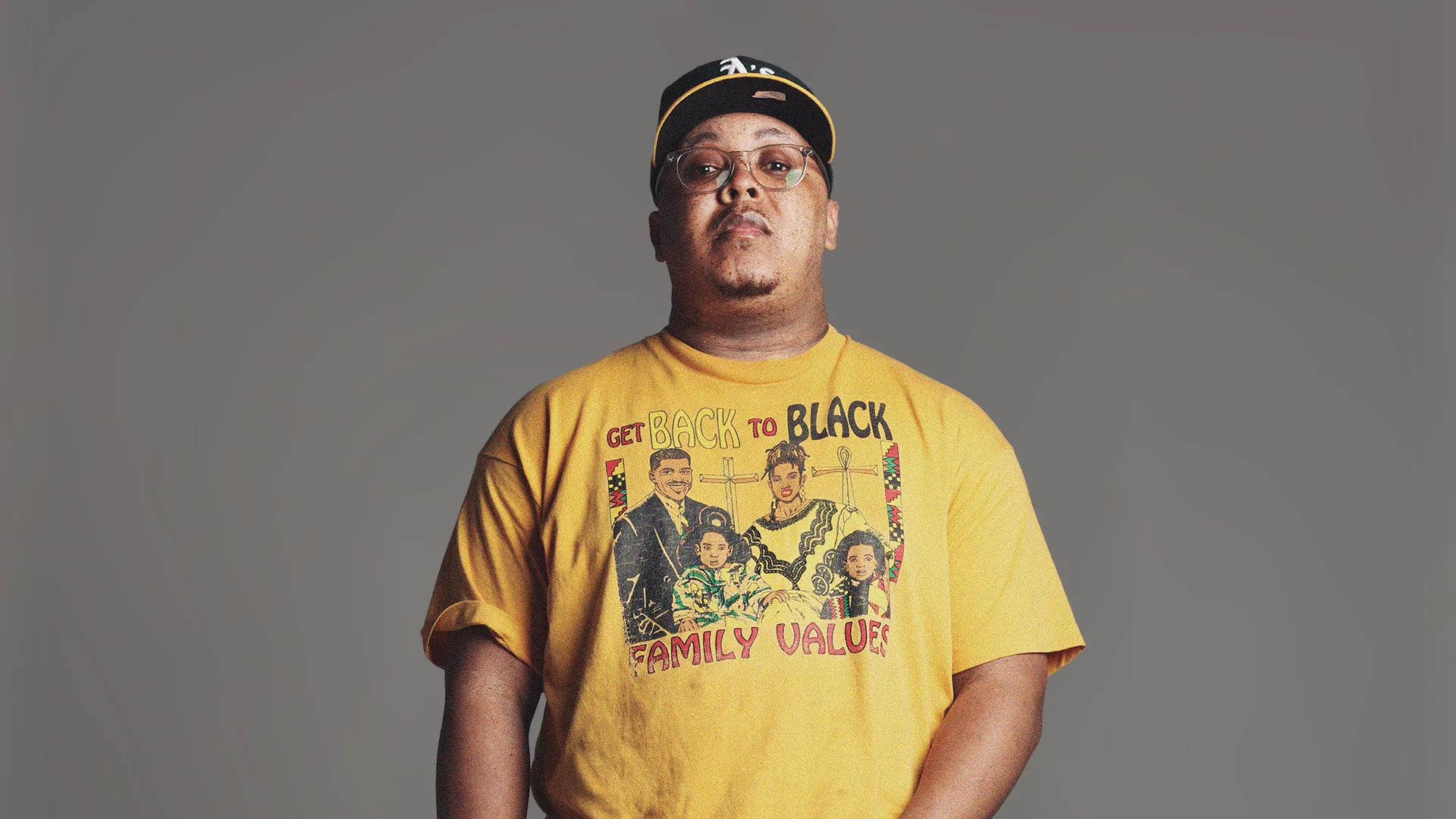
After its inception, the culture of grime became ubiquitous; school playgrounds were filled with the sounds of cyphers and polyphonic ringtones, while at home kids learnt how to avoid the adverts when taping your favourite MC’s radio appearances. “I think older people like myself have struggled to convey that there was so much more to it, and that’s where the frustration came in. It stopped us embracing the youts.” That hostility encouraged a generation of artists like AJ Tracey and Aitch to actively distance themselves from the genre. “They were all on grime, but now they’d never even say the word because people kept chatting shit to them, about how they wasn’t on [seminal pirate radio station] Deja.”
His flamethrower verse on ‘When I’m Ere’ was an impressive curtain raiser to the first act of Manga’s career, which followed the trajectory of many grime MCs at the time, plenty of whom have since drifted away from the scene and even music altogether. He enjoyed the local acclaim that came with being one of his area’s microphone champions, and received modest benefits from Roll Deep’s successful pivot towards a more sugary, radio-friendly sound, which capitalised on grime’s growing mainstream popularity.
“I was on shit songs about the dancefloor,” he says. “I just wasn’t on the big ones, like ‘Good Times’ or ‘Green Light’ [both reached No.1 in the UK singles chart in 2010]. But from that we had an album, which I was on. I did all the shows. I didn’t make thousands of pounds from all that, but I was there.”
The culture of grime that Manga grew from was organic; he was fed on a diet of on-the-spot clashes and the organised chaos of pirate radio sets. It’s not surprising that he found the more calculated approach required to make a living in music less fulfilling, and his career suffered. But the theme of accountability is something that comes up regularly throughout our conversation; he takes ownership for the direction in which things were heading. As a member of Roll Deep, he witnessed the sacrifices and workrate required to succeed.
“When people would ask, ‘Why aren’t you in this position, doing this or doing that?’ The reality is I never done as much as those people around me at that time,” he admits. “They’d sleep on the studio floor, and not eat, and use their last £100 to press vinyls. I wasn’t doing any of that. I was looking for a job.” It’s a quandary that so many from working-class backgrounds who are chasing a career in the arts face, caught in that dead space between dreams and the grinding reality of everyday life. “But then in the last six or seven years, I would do that. As Manga Saint Hilare, I’ve tried bare hard. And I’ve seen the difference,” he adds.

“Grime was my generation’s language. It was everywhere. It wasn’t just ‘Boy in da Corner’ and ‘Home Sweet Home’. You can’t just encapsulate grime in music”
The second act of Manga’s career began in earnest in 2017, with the release of ‘Outbursts From The Outskirts’. Now working as Manga Saint Hilare, he wanted to create something that represented his newfound commitment to life as an artist, and begin building a legacy far greater than one hot verse. “I thought to myself, if I stop doing music then I’ve wasted my time. Because I’d been there for ages, and I hadn’t really done anything,” he explains. “Like I might be in Sainsburys, and someone says to me, ‘I remember you from that ‘When I’m Ere’ song’. That would be it. That’s dead! I said, I’m gonna put everything into this, and not be shook.”
He understood that being part of a crew had served as a comfort blanket, but overcame the feelings of vulnerability brought about by being alone and exposed to create one of the most significant grime albums of the last decade. Produced in its entirety by Lewi B, ‘Outbursts...’ is laced with forward-thinking, ice-cold beats, which Manga carves up like a bespectacled assassin with his sawtooth flow. He also dishes out a potent dose of radical introspection, which felt revolutionary for a grime artist at the time.
These emotional gut-punches take the shape of ‘Outburst’ skits, delivered by longtime collaborators like Izzie Gibbs and Maxta, and Manga himself on the visceral ‘Outburst004’, where his voice falters as he describes feeling adrift and alone, before resolving to let go of the past in order to move forward, and ending with a hopeful message: “To all my overlooked outsiders / All them talented kings and queens / Don’t let the fact you were once lost / Make you scared to take the lead, believe.”
This capacity for self-examination has elevated Manga’s growing body of work ever since; projects like ‘Outsiders Live Forever’ (2018), ‘Glow In The Dark’ (2021) and last November’s ‘Run For Your Life’ pulse with the combustible energy of grime, but are grounded in the emotional clarity of a person truly seeking to understand himself. With this distinct approach to songwriting has come recognition.
Off the back of 2020’s ‘Make It Out Alive’, he was nominated for Best Grime Act at that year’s MOBO awards, after nearly two decades in the game. Album opener, ‘Escape Plan’, is as poetic and profound a meditation on depression as you could hope to find in any genre of music. “I had a lot of dark energy around me that I couldn’t explain / But I didn’t want to be saved / I woke up late / I didn’t know myself, only knew my name,” he raps over shimmering keys.

Manga’s vast catalogue is punctuated with these deeply personal moments; tracks like ‘Control It’ from the excellent ‘Glow In The Dark’, and ‘Electric Future’ — the soul-baring closer to ‘Run For Your Life’ — linger long in the mind after they finish. At his most vulnerable, he leaves you hoping someone is checking in on him. But songwriting is his way of processing and ultimately expelling those feelings.
“I don’t have another job. This is what I do. So I have a lot more time to sit there, think about these things and come to conclusions. Whereas the average person might just have to get on with it,” he says. This allows him to clear any emotional blockages and move on. “Everything just flows. Just sitting down and writing down my thoughts, that’s easy. It’s like journaling. It’s just conversation, like how me and you are talking.” This willingness to be open builds an important bridge between artist and listener. At times it feels like Manga is speaking directly to you.
His music is an antidote to the reductive idea that there’s no scope for complex themes within the framework of grime. It’s a viewpoint held by many about the genre, boiling it down to little more than reloadable bars and 140BPM productions. “When it comes to the actual writing, it’s not hard to include those themes. But the problem is how it’s received,” he explains. “As soon as you do something that’s different, with some emotion, they’ll say it’s not grime, because it’s not instantly recognisable. That’s the biggest problem. I’m a grime artist, so whatever I do, it comes from that place. It is grime. It doesn’t matter if it’s not 140BPM. I think only two songs on ‘Boy in da Corner’ are 140, but you can’t tell me that’s not the best grime album ever.”
He continues: “Then what made it worse is when artists started saying, ‘Nah, I’m not just a grime artist. I don’t just do grime’. So grime was seen as an entry level joke ting,” he laughs wryly. “And now I’m trying my hardest to make it abundantly clear that we can make some real music out of this. Because I’ll be real, I think we [grime artists] are the best. We know how to perform. We know how to improvise. We know how to create music in other genres. When it comes to creation, we’re sick! Put it this way: rappers can’t do what we can do, but we can do what they can do.”
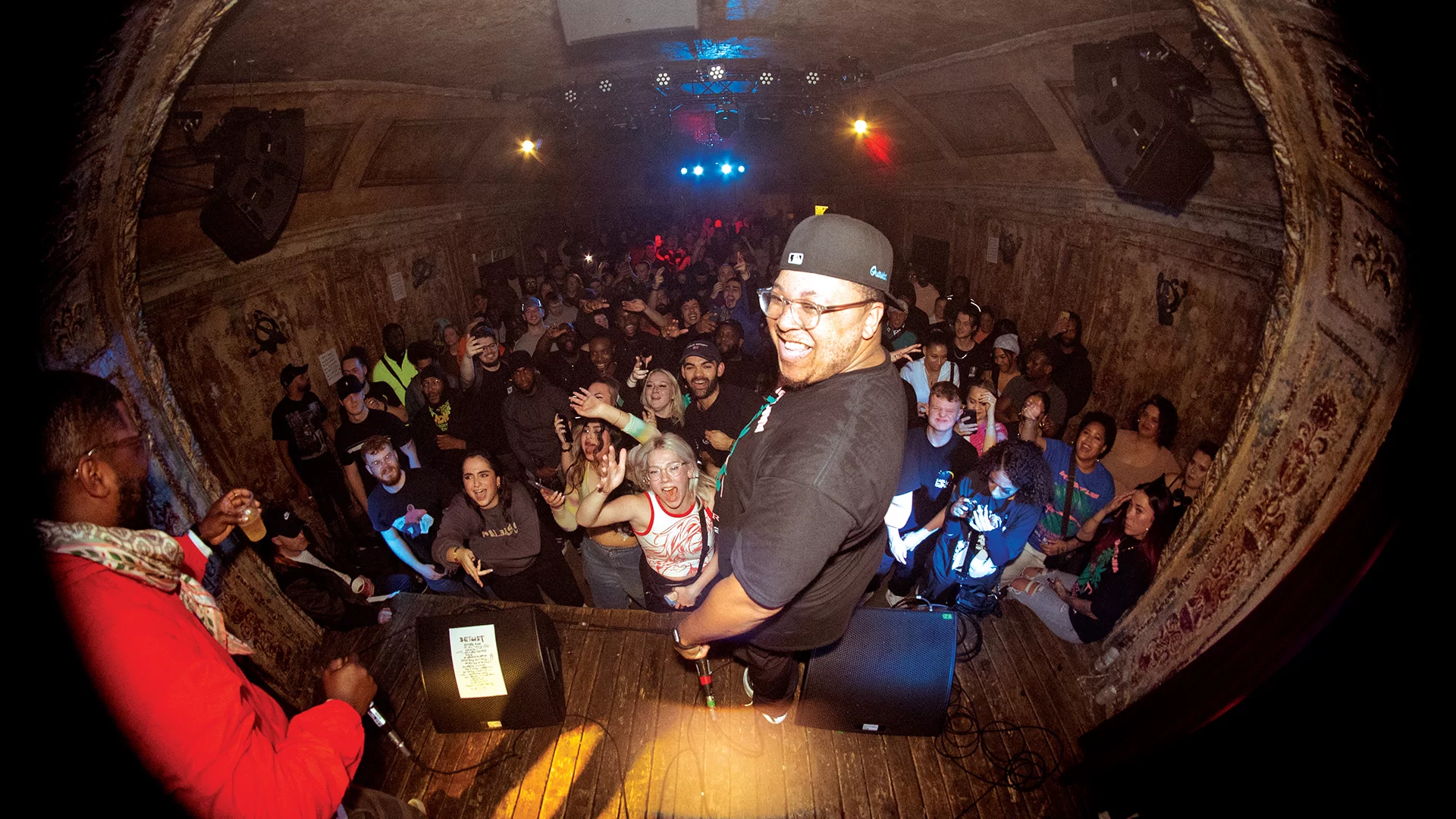
“As soon as you do something that’s different, with some emotion, they’ll say it’s not grime, because it’s not instantly recognisable. That’s the biggest problem. I’m a grime artist, so whatever I do, it comes from that place. It is grime”
Performance is in Manga’s DNA. Grime artists of his generation were raised with an ‘any time, any place’ attitude, like gunslinging outlaws from the Wild West. They had to stay ever ready, always strapped with flows and lyrics, in case they happened upon an off-the-cuff clash or an unexpected pirate radio set.
He’s speaking to DJ Mag shortly before the first in a series of live shows, where he’ll perform tracks from ‘Run For Your Life’. Close your eyes and it’s easy to picture a sea of gun fingers when ‘Together’ — which features D Double E — drops. “The shows are the best bit, by far. That’s the most confident I feel. I don’t like anything else... anything else,” he laughs. “Writing and recording is hard in comparison. Performing is sick.”
His confidence is rooted in the countless practice hours he put in as a hungry, young MC, often required to emphatically state his credentials at the drop of a hat. “You had to perform, all the time! You’d go radio. You wouldn’t know who’s who. And you just had to do it. You didn’t know who was listening, or if it was even being recorded. You didn’t even know who was in the room. You’ve got to merk, regardless,” he explains, his voice quickening, as if he’s reliving the adrenaline-fuelled excitement of that time. “Or you’d go to a rave and it’s like, you’ve gotta spray, now! There’s no rehearsal time. You didn’t even know what beat was gonna be playing. Performing is sick because I trained for it. I never trained for anything else.”
Manga’s training ground was places like Raw Mission FM, opposite the bingo hall on Cricklewood Broadway, North-West London, where the floor once caved in during a set. “Radio was dangerous, you know,” he jokes. He’s travelled a long way since, propelled by the relentless energy that is grime’s essence, growing as an artist and as a man with every release. “I don’t hold on to any negative feelings now. You have to be forward, be honest with yourself, and then you move on from it. We all have those feelings, and we all need outlets.”
